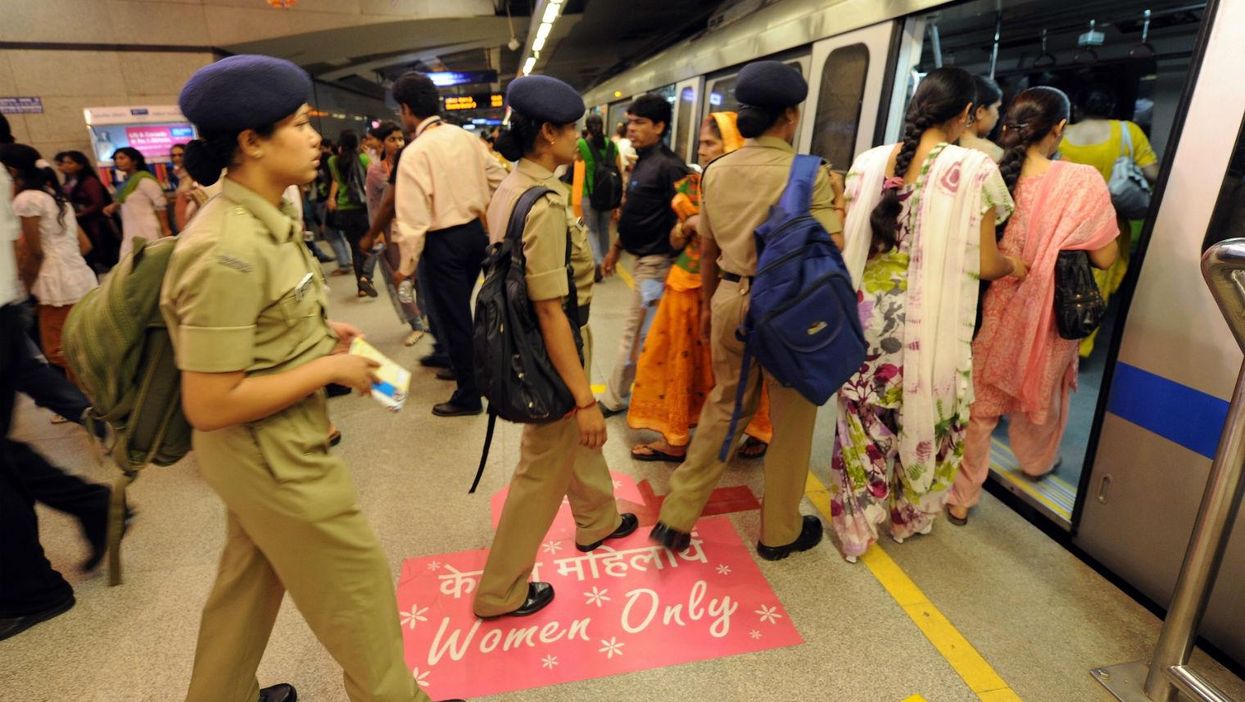News
Bethan McKernan
Aug 26, 2015

Commuters board a women-only train carriage in New Delhi, India, on October 2nd, 2010.
It's fair to say the news that Labour leader front-runner Jeremy Corbyn is willing to consider women-only carriages on public transport has been met with some backlash.
Transport for London recently revealed that sexual harassment has risen by a third on the tube network and London trains, and the introduction of the 24 hour tube service later this year has led to worries over an even more hostile environment for women travelling at night.
In a new policy statement on ending street harassment, Corbyn wrote:
It is unacceptable that many women and girls adapt their daily lives in order to avoid being harassed on the street, public transport, and in other public places from the park to the supermarket...
Some women have raised with me that a solution to the rise in assault and harassment on public transport could be to introduce women only carriages.
While women only carriages are in common use in India, Japan and Mexico, Brits have proved to be less enthused by the idea, saying it alienates people who may identify as trans, and creates an onus of victim-blaming:
Most disturbing is the idea that women who choose not to use female-only carriages might become more vulnerable to attack.
Some people have pointed out some other useful segregated carriages we could use:
Although, obviously, the idea of women only carriages raises a valid point.
Corbyn has been defended by many who point out that he only said he will consider women only carriages, which have also been on the Conservative and Ukip agenda for some time now.
Other ideas floated by the Islington North MP to end sexual harassment which have been praised include a 24-hour police hotline for women to report harassment, creating positions dedicated to women's safety on local councils, and stricter rules to get licence holders and club owners to report sexual offences that occur on their premises.
More: This T-shirt will almost definitely help you avoid sexual harassment
Top 100
The Conversation (0)














